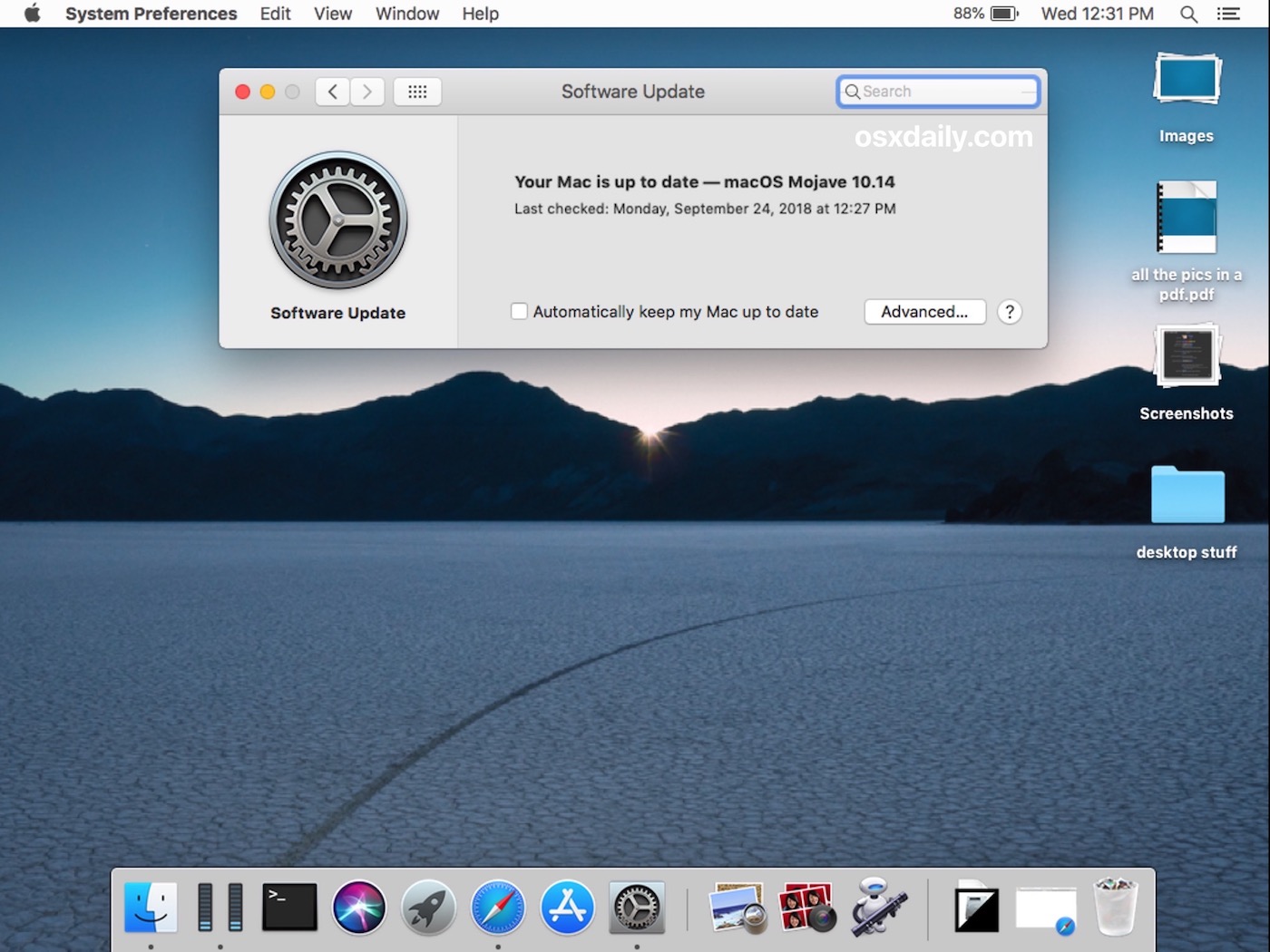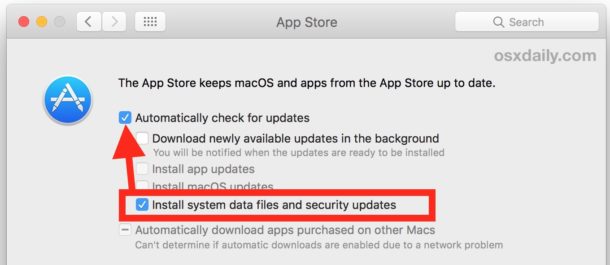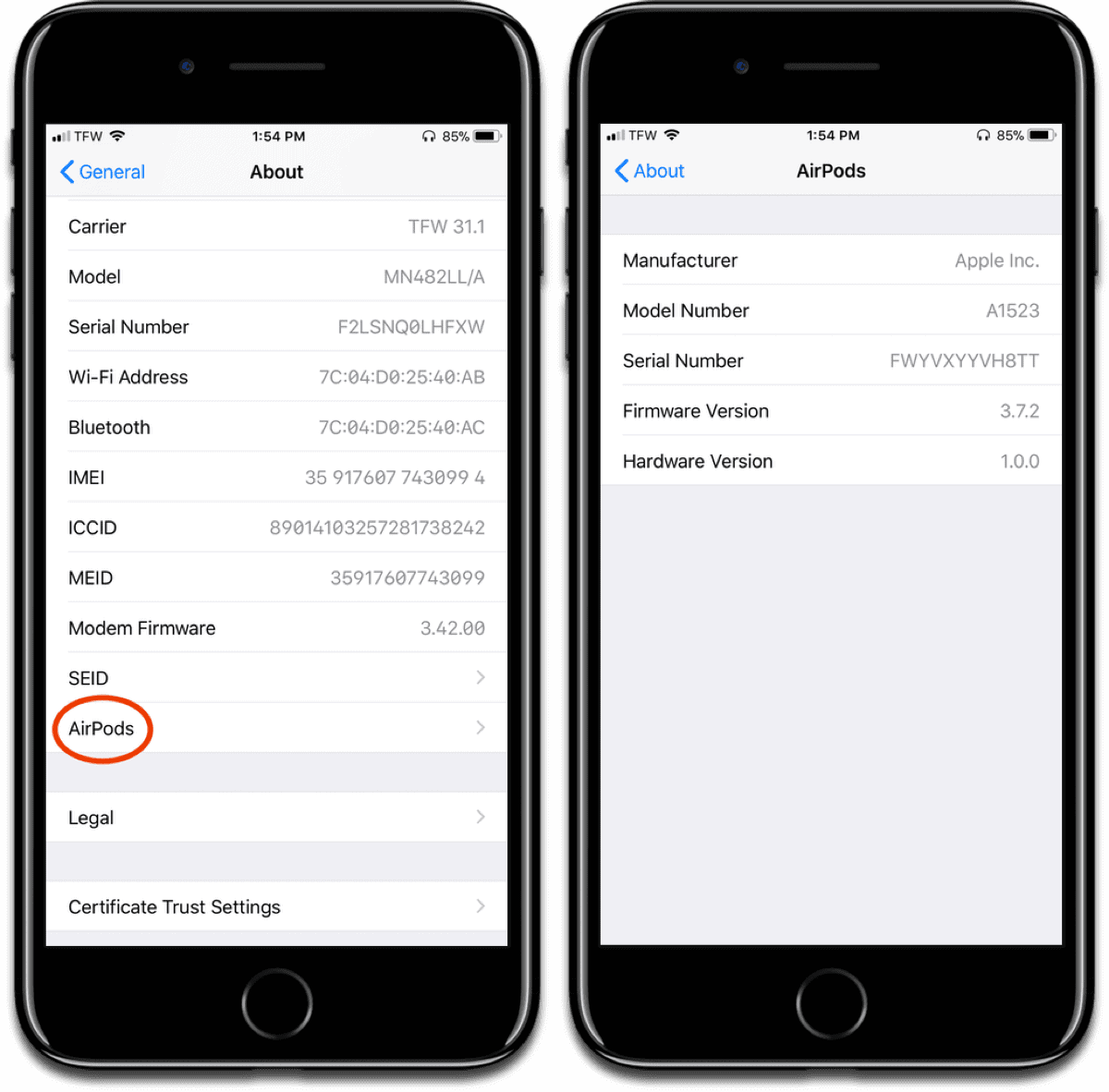Sep 28, 2020 • Filed to: Solve Mac Problems • Proven solutions
With the introduction of modern Operating Systems, managing a computer has become easier than ever before. The operating system interacts with a computer's hardware by conveying the user's commands to the hardware. It also acts as a platform for all other software on the computer by providing necessary resources for them to function properly. Apple has been a pioneer in the technology industry most famous for providing cutting edge designs and updates in their devices and software. MacOS is one of the company's biggest creation. It is the second most consumed operating systems in the world.
Apple's security through its operating system is impenetrable. It is nearly impossible to hack through Apple's computers but the stored data is vulnerable during an update that could lead to the deletion of important data like pictures, videos, and documents. Continue reading this post to know the answer to the following queries - How to update Mac OS and can you recover the data lost after such update?
Part 1. Overview of Safari

Windows updates; mac OS; Windows updates. Automatic Updates. Automatic updates are only for critical updates. They do not include security patches, service patches, drivers, or other updates. It is recommended you set up your computer to do critical updates automatically, even though they are also included in the standard Windows Updates. For example, -schedule on/off enables/disables your Mac's scheduled background check for updates. More adventurous readers can use man softwareupdate and softwareupdate -h for a summary list of. If your Mac is using an earlier version of any Mac operating system, you should install the latest Apple software updates, which can include important security updates and updates for the apps that are installed by macOS, such as Safari, Books, Messages, Mail, Music, Calendar, and Photos. How to Update Safari on Mac. To perform Safari browser update you need to follow the steps below. There are many ways to update your MacOS which include checking for a software update within the system, downloading the operating system from Apple's website, and installing it from a Bootable USB drive. Here are the steps to update MacOS Mojave. Update Microsoft applications for Mac by using msupdate.; 2 minutes to read; In this article. Microsoft AutoUpdate (MAU) version 3.18 and later includes the msupdate command-line tool. This can be used to start the update process for Microsoft applications produced for Mac, such as Office.
MacOS was developed for Apple's line of computers. Hera-MacOS X server 1.0 was released in 1999, since then 15 versions have been launched in the market. In 2001, MacOS X 10 Cheetah was the first one to be released for commercial use. This operating system has been widely regarded as the inspiration and core behind the iOS, Apple's watchOS, and the tvOS. MacOS 10.14 Mojave is the latest version of Apple's computer-based operating system.
Mojave is compatible with Apple systems released after 2012. It supports almost all devices from desktops to laptops which include the latest versions of MacBook, MacBook Pro, Mac mini and the MacBook Air. It was initially offered in 22 different languages which were for the convenience of the user but with the latest update, Apple now offers 38 languages that can be changed from one to another by simply clicking on the system preferences. The user would just click on Language and Region and select the desired language from the list available.
The latest OS offers some exciting feature with its release.
- A Night Mode has been added system-wide which the user can enable to use the computer easily during the night or in a dark room.
- A newly designed Mac App Store has been introduced.
- The latest OS with its new Stacks feature allows the user to organize the files on the computer.
- Apple has also re-modified the working of its Finder application that checks the file's metadata and performs Quick Actions without ever opening the file or any app.
- A new Screenshot feature has been added to the photo viewing app which allows the user to take a snap by clicking on the new Screenshot utility icon or by pressing Shift-Command-5 from the keyboard.
- The Mojave update also enables the user to connect up to 32 users at the same time on the FaceTime App, it also allows the user to invite anyone at any time during the conversation.
Part 2. How to Check for Updates on Mac?
The latest update of any MacOS comes with its improvement in security and reliability. It includes updates in the browser-Safari and other apps like iTunes. Here are the steps to check for updates on Mojave.

- Click on System Preferences from the Apple menu.
- Click on Software updates, the fourth option in the third row.
- If any updates are available you will notice an Update Now Icon on the right side of the screen.
Part 3. How to Update Safari on Mac
To perform Safari browser update you need to follow the steps below.
There are many ways to update your MacOS which include checking for a software update within the system, downloading the operating system from Apple's website, and installing it from a Bootable USB drive. Here are the steps to update MacOS Mojave.
- Click on the Update Now option in the software update section and wait for it to install.
- You can check and manually install the desired update on the system by clicking on 'More info'.
To ensure auto updates from further on, Check the 'Automatically keep my Mac up to date.' option.
When the latest Operating system is installed it updates all the system apps which include Safari, FaceTime, and others. You can also update it from the Apple App store by opening it and following the below-mentioned steps.
- Type MacOS or Mojave in the app store search bar.
- It will lead you to the official website of Apple. Click on Upgrade now available at the bottom of the page.
- Install MacOS on your Mac.
- If after trying out all mentioned steps the MacOS does not install, copy the Operating system to an external source using various compression software. After that connect the computer with that bootable USB drive and start the installation process. The USB should contain at least 16GB of space.
Apple has a tendency to release updates frequently to the operating system through the course of the year until the latest version is launched. Those updates cater to the software problems and bugs which are fixed but sometimes a new feature is also added with the update.
Part 4. How to Fix 'Mac Not Updating'?
Updating and installing Apple's operating system is extremely easy. Sometime during the update, problems occur which causes an installation error that stops the downloading process. Many factors can halt the normal process like the Apple account issue when a user accidentally provides the incorrect password or a wrong Apple ID. The user also should check the Apple server as they are prone to collapse whenever a major update is introduced due to the heavy traffic on the servers. Here are the things that are required to fix the update error.
- Restarting your Mac.
- Make sure you have sufficient memory in your system to perform such a task.
- Stable and fast internet is essential to connect the Apple server with the user's computer to update MacOS.
- Quit all running apps by pressing Option, Command, and Escape (Esc) buttons simultaneously and then clicking on Force Quit option, after selecting the apps.
Part 5. How to Recover Lost Data Due to Mac Update?
It is common during a MacOS update that data tends to get erased and lost. Recoverit Data Recovery tool is the most convenient option to recover all the lost data in Mac. Developed by Wondershare, Recoverit Data Recovery Mac is used by more than 5,000,000 across the world. It is a recovery tool that provides such amazing and advanced features. The tool provides an instant preview of what is recovered after a thorough scan. It allows to connect almost every type of portable device and recover data from them.
If the data is important then the user must perform a data recovery operation to get back all the lost files using Recoverit Data Recovery tool for Mac. It offers an effortless solution to the user's data recovery problem caused during the installation. First, you are required to download the Recoverit software on your Mac from its official website and install it.
After successfully following the procedure and installing the software, run the program and follow the step-by-step guide on how to recover lost data.

Step 1: Select the Location
After launching the Recoverit Mac data recovery software, select the location where data was deleted or lost after the update. Click 'Start' button to initiate the process.
Step 2: Scan the Location
Data scanning will start in Recoverit, depending on the size of the data lost the scanning will take time to finish the scan and the result will be displayed on the program window.
Step 3: Preview and Recover
The recovered files will be displayed on the Recoverit window. You can select the data by browsing around and locate the desired file using the preview feature, whether it be images and videos, you can preview the file in Recoverit. Click on the 'Recover' button after following the procedure to get the files back. The restored data will be saved back to the source location.
How To Check For Os Updates Mac
Latest updates give you amazing new features and great user experience. These updates can cause some issues along the way. Now, you know what to do whenever you want to upgrade your MacOS by following different methods to ensure a safe and hassle-free process. Moreover, Recoverit Data Recovery guarantees data recovery in no time. You can recover lost files after Mac updating.
What's Wrong with Mac
- Recover Your Mac
- Fix Your Mac
- Delete Your Mac
- Learn Mac Hacks
How to get updates for macOS Mojave or later

If you've upgraded to macOS Mojave or later, follow these steps to keep it up to date:
- Choose System Preferences from the Apple menu , then click Software Update to check for updates.
- If any updates are available, click the Update Now button to install them. Or click ”More info” to see details about each update and select specific updates to install.
- When Software Update says that your Mac is up to date, the installed version of macOS and all of its apps are also up to date. That includes Safari, iTunes, Books, Messages, Mail, Calendar, Photos, and FaceTime.
To find updates for iMovie, Garageband, Pages, Numbers, Keynote, and other apps that were downloaded separately from the App Store, open the App Store on your Mac, then click the Updates tab.
To automatically install macOS updates in the future, including apps that were downloaded separately from the App Store, select ”Automatically keep my Mac up to date.” Your Mac will notify you when updates require it to restart, so you can always choose to install those later.
How to get updates for earlier macOS versions
If you're using an earlier macOS, such as macOS High Sierra, Sierra, El Capitan, or earlier,* follow these steps to keep it up to date:
Mac App
- Open the App Store app on your Mac.
- Click Updates in the App Store toolbar.
- Use the Update buttons to download and install any updates listed.
- When the App Store shows no more updates, the installed version of macOS and all of its apps are up to date. That includes Safari, iTunes, iBooks, Messages, Mail, Calendar, Photos, and FaceTime. Later versions may be available by upgrading your macOS.
To automatically download updates in the future, choose Apple menu > System Preferences, click App Store, then select ”Download newly available updates in the background.” Your Mac will notify you when updates are ready to install.
* If you're using OS X Lion or Snow Leopard, get OS X updates by choosing Apple menu > Software Update.
How to get updates for iOS
Learn how to update your iPhone, iPad, or iPod touch to the latest version of iOS.
Check For Updates On Mac Os
Learn more
Unable To Check For Updates Mac Os Big Sur
- Learn how to upgrade to the latest version of macOS.
- Find out which macOS your Mac is using.
- You can redownload apps that you previously downloaded from the App Store.
- Your Mac doesn't automatically download large updates when it's using a Personal Hotspot.

